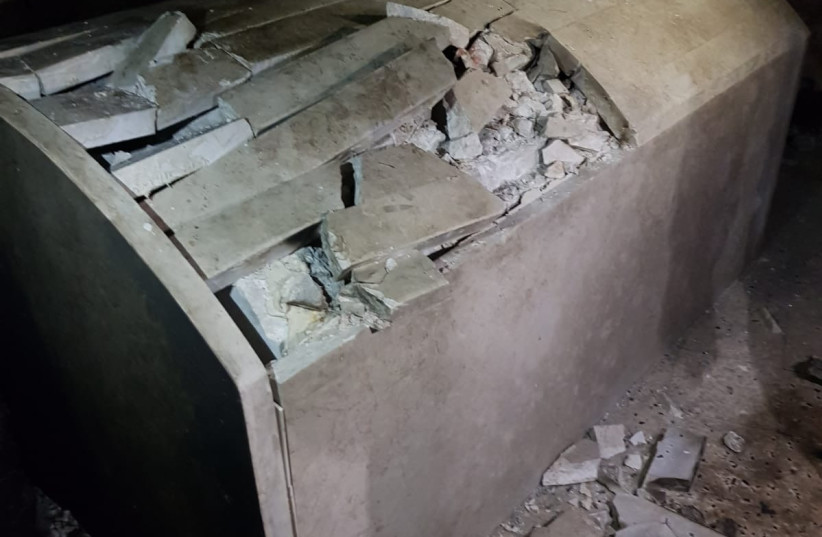Thousands of Jewish worshippers visited Joseph's Tomb in Nablus on Tuesday night, a year after Palestinians torched the shrine.
The participants included Shas MKs, Rabbi Shalom Arush and Samaria Regional Council head Yossi Dagan. The visit was the largest since before the coronavirus outbreak.
"We came here, with a rabbi, to pray in this holy place, but also to tell the government that this situation of Jews coming here in the middle of the night cannot continue, this place is one of the holiest places for the Jewish people, and even according to the evil and unfortunate Oslo Accords it should be under the full control of the State of Israel, along with the road that leads to it," said Dagan during the visit.
"Precisely at a time when certain factors are trying to create a division in the nation, we connect to the image of the righteous Joseph who was the unifier, who knew how to forgive and knew how to bring everyone together, the people of Israel and from them the whole world."
The worshippers were accompanied by heavy security by Israeli forces. During the visit, armed clashes broke out nearby between Israeli forces and Palestinians, with one Palestinian shot and injured amid the clashes. Five additional Palestinians were injured by rubber bullets.

No Israelis were injured during the visit.
A year since the tomb was torched by Palestinian rioters
In April 2022, Palestinian rioters vandalized Joseph’s Tomb in the West Bank city of Nablus amid clashes with the IDF, setting fire to the site, damaging the gravestone, a chandelier hanging above it, a water tank and an electricity closet.
The tomb, located in Nablus and built on the site of the biblical city of Shechem, remained in IDF’s hands after the 1993 Oslo Accords but was handed over to the Palestinian Authority in October 2000. The transfer happened after a gunfight over the site in which 17 Palestinians and Border Police Cpl. Madhat Yusuf, 19, of Beit Jann, were killed. The Od Yosef Hai Yeshiva, which had been located there since 1982, was forced to relocate to the Yitzhar settlement.
Jewish access to the site is limited and occurs only with the help of an IDF escort, although there are Jewish worshippers that enter Nablus illegally to pray at the tomb.
Tovah Lazaroff and Anna Ahronheim contributed to this report.
